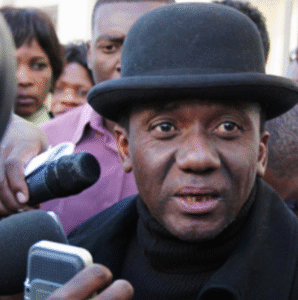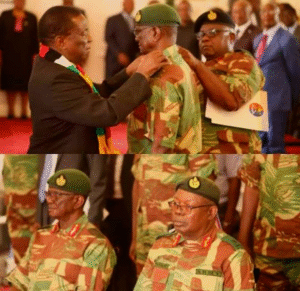ZIMBABWE ELECTIONS: PEACEFUL BUT NOT FREE, FAIR, OR CREDIBLE, DECLARES UK HOUSE OF LORDS

In a recent declaration, the United Kingdom’s House of Lords has expressed its concern regarding Zimbabwe’s controversial elections, deeming them relatively peaceful but fundamentally flawed. The aftermath of these elections, coupled with ongoing authoritarian repression, has intensified Zimbabwe’s long-standing crisis, destabilizing the region. To address this pressing issue, the House of Lords emphasizes the importance of continued engagement with Zimbabwe through fresh diplomatic channels, particularly involving the new British ambassador to Harare, the Southern African Development Community (SADC), and the African Union.
A New Face in Harare: Peter Vowles Appointed British Ambassador
One significant development in the UK’s approach to Zimbabwe is the appointment of Peter Vowles as the new British ambassador to the country, succeeding Melanie Robinson. Vowles brings a wealth of diplomatic and development experience to his role, highlighting the UK’s commitment to actively engaging with Zimbabwe during these challenging times.
Questioning the Elections: Baroness Hoey Demands Clarity
During a parliamentary session, Baroness Hoey, well-informed about Zimbabwe’s affairs, directed a question to James Cleverly, the Secretary of State for Foreign, Commonwealth, and Development Affairs, seeking the British government’s stance on Zimbabwe’s recent elections. Lord Ahmad, the Minister of State for the Middle East, North Africa, South Asia, and the United Nations at the Foreign, Commonwealth & Development Office, and also the Prime Minister’s Special Representative for Preventing Sexual Violence in Conflict, responded on behalf of the government.
UK’s Assessment of Zimbabwe’s Recent Elections
Lord Ahmad conveyed the UK’s appreciation for the peaceful participation of Zimbabwean voters in the recent elections. However, he highlighted that the UK shares concerns expressed by international election observers. These observers noted that the pre-election period and election day fell short of regional and international standards. Furthermore, transparency issues surrounded the compilation of results by the Zimbabwe Electoral Commission, and there were significant disruptions to domestic observation.
Baroness Hoey’s Firm Stance on the Elections
Baroness Hoey firmly asserted that the recent elections in Zimbabwe were far from free and fair, citing opposition leader Nelson Chamisa’s characterization of them as a “blatant and gigantic fraud.” She also referenced a critical SADC report that questioned the credibility of the elections and highlighted violations of its own standards. Baroness Hoey expressed deep concern over the continued arrests, abductions, and torture of opposition supporters in the post-election period, likening it to retribution tactics seen after the 2008 elections. She called for robust support from the UK government for SADC’s efforts to address the crisis and urged the new British ambassador to reevaluate the relationship with the Zimbabwean government.
Zimbabwe’s Strategic Importance
Lord Howell of Guildford emphasized Zimbabwe’s vast potential wealth and strategic importance. He noted that, in the long term, the UK will need access to Zimbabwe’s markets, raw materials, and support to counter the influence of other global powers, such as Russia and China, in Africa. While acknowledging present difficulties, he suggested that Zimbabwe could potentially rejoin the Commonwealth when it meets the necessary democratic and legal standards.
Towards a Better Zimbabwe
Baroness Kingsmill, who recently participated in the Commonwealth observer group in Zimbabwe, shared insights from her experience and stressed the importance of Zimbabwe meeting democratic standards, the rule of law, and free elections to re-enter the Commonwealth. Lord Ahmad echoed her sentiments and expressed hope for a future where Zimbabwe could rejoin the Commonwealth, emphasizing the importance of inclusive and pluralist democracies.
UK’s Unwavering Stance
Lord Oates highlighted ongoing violence, intimidation of voters, abductions, and torture of opposition activists in rural areas, as well as the detention of opposition Members of Parliament. He called on the UK government to unequivocally declare that it does not recognize the recent elections as free and fair and to work with SADC colleagues to find resolutions to the crisis.
A Commitment to Democracy and Stability
In conclusion, the House of Lords has underscored the need for a comprehensive and inclusive approach to addressing Zimbabwe’s crisis. While commending the peaceful participation of Zimbabwean voters, the UK remains vigilant about the flaws in the electoral process and ongoing repression. The appointment of Peter Vowles as the new British ambassador reflects the UK’s commitment to engage actively in resolving Zimbabwe’s challenges, with a focus on democracy, stability, and the rule of law. As Zimbabwe navigates these turbulent times, international cooperation and diplomatic efforts are vital to promote a brighter future for the nation and its people.




